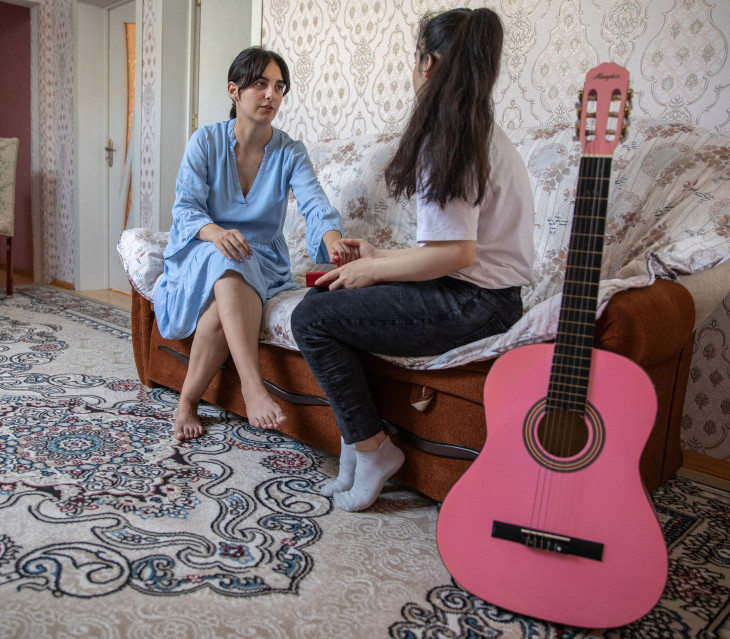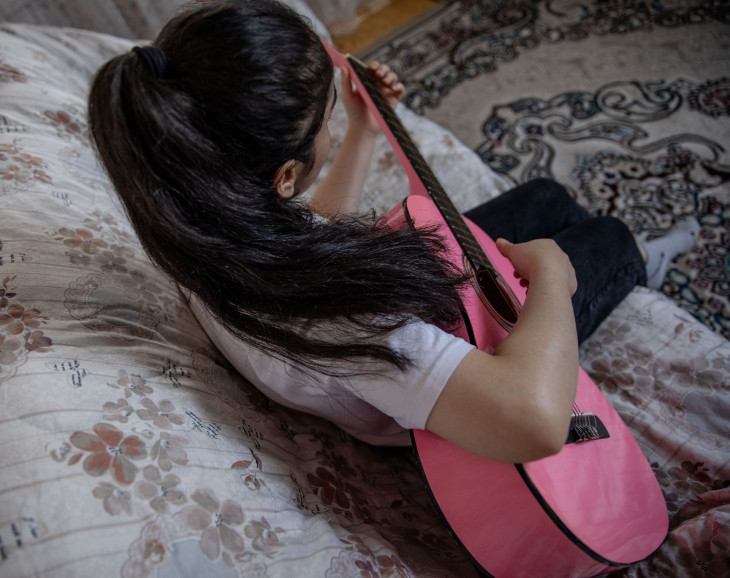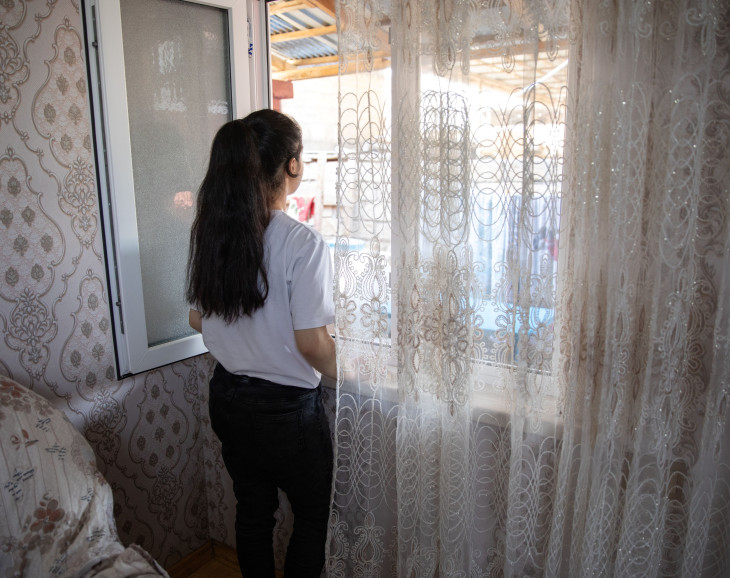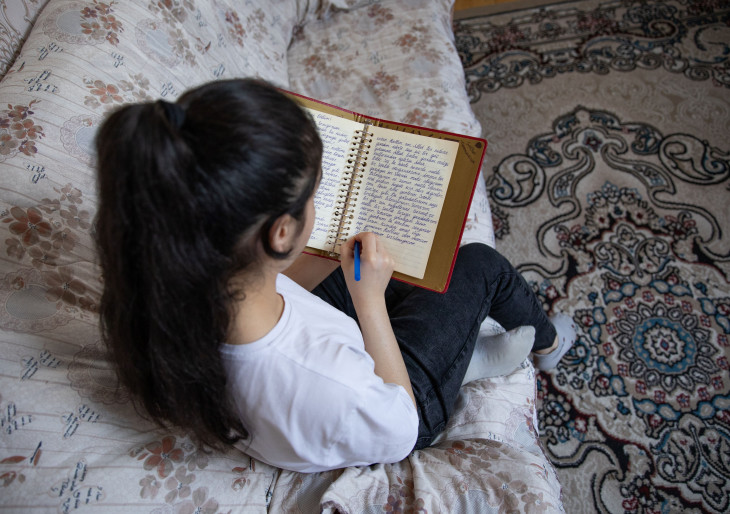Maryam was part of the first group of Azerbaijani children repatriated from Iraq. She and her siblings were placed under the guardianship of her uncle’s family. Though Maryam’s physical needs were met, she suffered from the effects of potential traumatic events, having lost both her parents in a war-torn environment, and experiencing violence firsthand.
© Aida Aliyeva/ICRC
The death of her mother had a particular deep impact on Maryam’s life. Maryam and her mother had been cooking dolma, a traditional dish made of grapevine leaves stuffed with meat, when their house got shelled and Maryam’s mother was killed right in front of her eyes. The experience left Maryam emotionally scarred, leading to dissociation and a prolonged period of detachment from her surroundings. Among other things, she stopped eating or cooking dolma as it became a painful reminder of her mother’s death. She also withdrew from social activities, refusing to attend school and isolating herself.
 © Aida Aliyeva/ICRC
© Aida Aliyeva/ICRC
Though she struggled to cope with her emotions, Maryam’s resilient spirit shone through eventually. When Maryam came in contact with the International Committee of the Red Cross (ICRC), she was told of the importance of addressing her emotional needs. Though her relatives initially discouraged her from seeking psychological support, ICRC psychologists advocated and provided psychoeducation to her family for Maryam to receive the necessary psychological support and built the trust for her to give it a try.
 © Aida Aliyeva/ICRC
© Aida Aliyeva/ICRC
Through the dedicated efforts of the local psychologist, who was trained and supervised by ICRC psychologists, and Maryam’s own determination, positive changes started to show. Maryam began to open up, becoming more social and forming meaningful connections with others. She made friends and discovered a passion for music.
 © Aida Aliyeva/ICRC
© Aida Aliyeva/ICRC
Encouraging her desire to become a singer, Maryam got a guitar and taught herself to play by watching tutorials online and began using music as a form of expression and healing. “Now I dream about becoming a guitar teacher,” says Maryam.
Not limiting herself to music, Maryam also started learning Arabic to expand her horizons and gain knowledge in various fields. Her love for books grew and she devoured literature to broaden her understanding of the world. “I don’t want to be like others. I’m different, and I want to experience a unique life,” she says.
One of the most significant breakthroughs in Maryam’s healing process was her ability to face her trauma head-on. After receiving psychological support, she found the strength to confront her painful memories and fears. Over time, Maryam began eating dolma again and even rediscovered the joy of cooking it herself.
 © Aida Aliyeva/ICRC
© Aida Aliyeva/ICRC
Maryam’s journey reminds that every child, regardless of their circumstances, deserves the opportunity to heal, grow and pursue their aspirations. It highlights the importance of providing long-terms and quality psychological support and resources to children who have been affected by conflict, enabling them to rebuild their lives and reclaim their sense of self.
The ICRC is committed to help children like Maryam, who are suffering the impact of conflict, from a purely humanitarian perspective. We also help them stay connected with their family members who are still in camps or detention centers in other countries.
(*Name changed to protect identity.)
We acknowledge Source link for the information.




